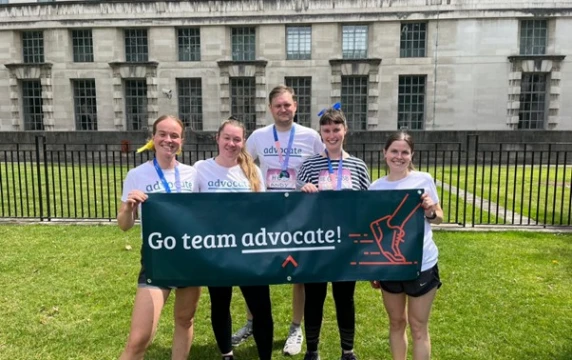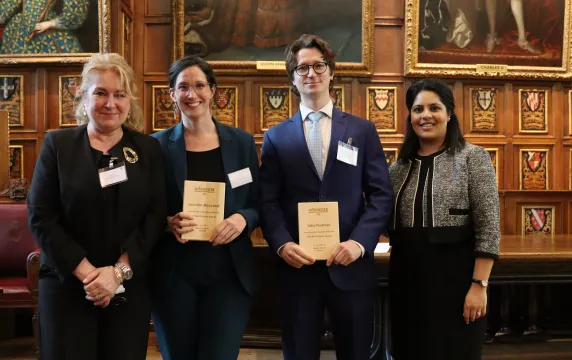When Arash was wronged by his mortgage broker he became homeless and suffered a heart attack. Fortunately, barrister Charlotte was able to help pro bono.
In 2005, Arash was a small-time property developer, who bought, built and renovated properties, often then letting them out, sometimes re-mortgaging them to fund the next project. He worked with Clive, a mortgage broker, who helped him secure finance for the properties.
When Arash exceeded his borrowing limits, he and Clive reached a verbal agreement that the properties would be purchased in Clive’s name and developed by Arash, who would be responsible for the costs of purchase, development and all the running costs. The properties would be held on trust for him, with Clive receiving a share of the rental income. Between 2005 and 2008, a portfolio of properties in Clive’s name was built up and developed by Arash.
Clive claimed that Arash had fallen into arrears on the arrangement between them and that as a result, Arash had agreed, in 2008, to give up his interest in the properties.
It took ten years for Arash to be able to bring a claim against Clive, who consistently ignored his attempts to contact him. During this time, Arash suffered many setbacks including three years of homelessness, a heart attack, the loss of his family and his belief that it was not possible to bring a claim against someone without the help of a solicitor.
In 2018, Arash turned to Support Through Court for help. He issued proceedings as a litigant in person and attended three court hearings as a litigant in person with their help. Arash describes the experience of being unrepresented and having English as a second language as bewildering and very stressful as he found court hearings extremely difficult to follow.
Support Through Court referred Arash to Advocate and we found barrister Charlotte John from Gatehouse Chambers, who stuck with the case for two years, giving Arash advice, drafting documents and eventually representing him in court. For Arash, this help was completely life-changing because Clive had a whole legal team, including Queen’s Counsel, and he could not afford equivalent representation.
Clive relied on a letter written by the conveyancing solicitors setting out Clive’s apparent account of the alleged agreement, and purportedly signed by Arash as confirmation. Arash denied receiving or signing the letter and called a forensic handwriting expert to give evidence.
After a long hearing, the judge found that, contrary to Clive’s claims, the true position was that Arash was in credit on the terms of the arrangement. He also found that Arash did not agree to give up his beneficial interest in the properties and that his signature was forged on the letter.
The judge also held that, even if he had found that Arash had agreed to give up his interest in the properties, he would have found the agreement to have been voidable and would have set it aside, on the basis of it being a gross breach of the rules concerning fair dealing between trustee and beneficiary and on the grounds of undue influence.
Arash was delighted and relieved after many years of fighting to secure a judgment finding him to be the owner of the properties, the value of which was worth over £1 million. He said: “If it were not for Charlotte’s day-to-day efforts, I would never have been able to achieve this success. She never ignored my comments or my emails. Charlotte’s help and faith in me more than made up for the legal inequality I experienced.”
Barrister Charlotte said: “This has been quite involved litigation, which has involved a substantial amount of documentary material, a confusing and complex financial picture, and which has taken a number of twists and turns in bringing it to the point of a concluded judgment. It has been hard work but extremely rewarding and I am delighted to have been able to assist the client in achieving a positive outcome.”







